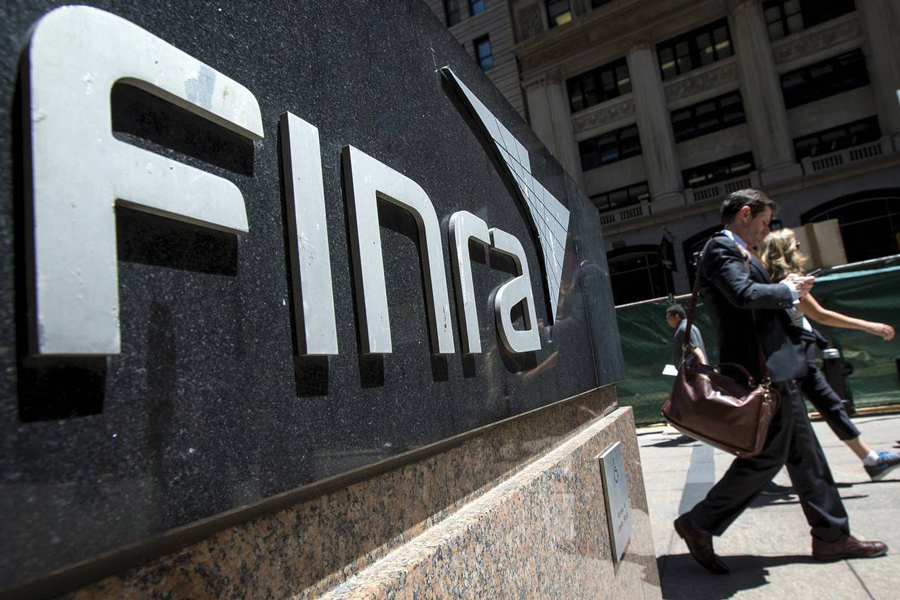

Lax anti-money-laundering oversight is costing Interactive Brokers more than $38 million in fines and other penalties, Finra announced Monday morning.
The Greenwich, Connecticut-based broker-dealer that claims more than $8.2 billion worth of consolidated equity capital was fined by the Financial Industry Regulatory Authority Inc., the Securities and Exchange Commission and the Commodity Futures Trading Commission for widespread anti-money laundering failures for at least five years through September 2018.
According to Finra, which fined the electronic B-D $15 million, Interactive Brokers “did not reasonably surveil hundreds of millions of dollars of its customers’ wire transfers for money laundering concerns. Those wires included million of dollars of third-party deposits into customers’ accounts from countries categorized as high risk by U.S. and international AML agencies.”
The Frina announcement stated that the B-D “did not reasonably investigate suspicious activity when it found it because it lacked sufficient personnel and a reasonably designed case management system.”
Finra’s investigation found that even after a compliance manager at the BD warned a supervisor that “we are chronically understaffed” and “struggling to review reports in a timely manner,” it took Interactive Brokers years to materially increase its staffing or make improvements to systems.
“Today’s action is a reminder that member firms must tailor their AML programs to the firms’ business model and customer base, and also dedicate resources to programs commensurate with their growth and business lines,” said Jessica Hopper, Finra executive vice president and head of enforcement.
“Finra will continue to take steps to ensure that firms comply with their obligation to monitor for, detect and report suspicious activity,” she added.
Interactive Brokers responded to a request for comment for this story with the following statement:
“As announced today, Interactive Brokers LLC has resolved matters with Finra, the U.S. Securities and Exchange Commission and the Commodity Futures Trading Commission relating to [the firm's] past anti-money laundering and Bank Secrecy Act program and practices.
We cooperated fully with our regulators in these inquiries, and the significant steps that we have taken to expand and enhance our program were taken into account in today’s settlements.
Interactive Brokers continuously works to enhance and strengthen our controls, and makes significant investments to improve our BSA and AML programs. We are committed to ensuring that our programs meet all regulatory expectations and our compliance staff have state of the art systems at their disposal.”
Adam Gana, a securities attorney who was not involved in this case, said the size of the fines illustrates how seriously regulators take lapses in security when it comes to money laundering.
“This is massive as you can see by the extent of the fines, because money laundering isn’t just about drug dealers, it’s also about terrorism and all sorts of criminal activity,” he said. “Broker-dealers and banks are the front lines and that’s why they’re required to have anti-money laundering systems in place, and this is a glaring supervisory hole.”
In its 2020 Risk Monitoring and Examination Priorities Letter, Finra highlighted AML as an area of concern and noted it will assess firms’ compliance with Finra Rule 3310. Firms can also review Finra’s Examination Findings Reports to understand Finra’s areas of concern related to AML and Finra provides guidance and offers compliance training to firms about their AML compliance obligations.
In determining the appropriate sanction, Finra considered the meaningful steps that Interactive Brokers took after the commencement of Finra’s investigation to remediate its AML program.

China may suspend some tariffs on US goods.

Shares up 5% in premarket trading following stronger results.

Trump policies mean finding new ways to gain from low-carbon bets.

Former Twitter company now less reliant on advertising.

Advisors should not just focus on rollovers in money movement advice
RIAs face rising regulatory pressure in 2025. Forward-looking firms are responding with embedded technology, not more paperwork.
As inheritances are set to reshape client portfolios and next-gen heirs demand digital-first experiences, firms are retooling their wealth tech stacks and succession models in real time.
